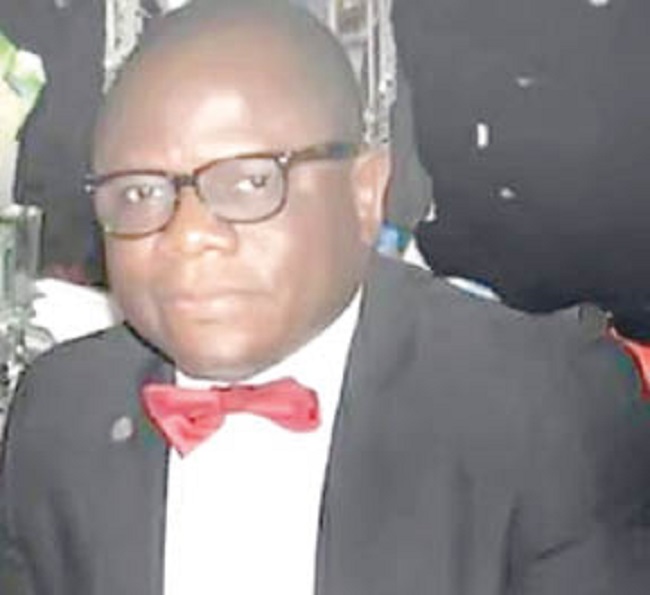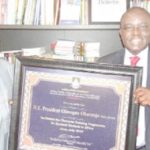REFLECTIONS is a book that primarily centres on politics, something most people will prefer to shy away from in public discourse. Is this a deliberate attempt to dabble into the controversy?
Political topics are often sensitive, personal and sometimes controversial because politics is about how the actions and inactions of politicians affect the everyday lives of citizens. In Reflections, I chronicled my personal thoughts and views on Nigeria’s political issues with the main objective of raising the political consciousness of citizens and improving good governance. When writing the book, I did not set out to deliberately cause controversies, but I was equally aware that it would be difficult not to cause a stir in the waters when navigating with a speedboat fuelled with truth.
For someone who spends a lot of his time in Australia, you seem to know so much about the major political events in Nigeria. How do you stay in touch?
I make a conscious effort to stay in touch with Nigeria and political events at home because of my love for the country and fellow Nigerians. I reside in Melbourne, Australia’s second largest city. It is nine hours ahead of Nigeria in winter and 10 hours ahead in summer. In this era of global 24-hour news cycle, the time difference offers the unique advantage of getting information about events in Nigeria in some cases when millions of Nigerians are fast asleep. I remember breaking the news of some political events to a few of my friends in Nigeria and they initially struggled to accept the fact that someone in faraway Australia knew what was going in Nigeria before them. However, my experience has not always been positive as I get occasional disparaging comments from online commentators who tend to express anti-Nigerian-in-Diaspora sentiments. From this people, I often get subtle criticism of my analyses, and in some cases, I am point-blankly told I have no business discussing affairs in Nigeria since I am faraway. I don’t argue with this category of people because I’m convinced that they have a limited understanding of how the present global village works.
In terms of my sources of information, I have reliable contacts within the major political parties and from time to time, I explore available information on reputable news media in Nigeria and elsewhere.
In Reflections, you spoke a lot about your preference for a Yewa-Awori governor for the people of Ogun State in the last elections, which did not happen. Considering what the state witnessed in the election, are you optimistic about the future?
The last gubernatorial election in Ogun State was a battle for supremacy amongst political gladiators in the state and the external forces determined to check the state governor at the time. In my assessment, the election was a battle for the soul of Ogun State politics, as shown by the forces that combined to defeat Mr Adekunle Akinlade, the Allied Peoples Movement (APM) candidate, whom Senator Ibikunle Amosun preferred as his successor.
Many months prior to the political parties’ primary elections, I saw the condescending narratives played out online by commentators from the Ijebu/Remo political bloc who were determined to produce the next governor of the state. In Reflections, I wrote about the symbolism of having someone from the Yewa-Awori bloc as the next governor of Ogun State and its significance on the psyche of the people who have been repeatedly told they’re not good enough to occupy the top political office in the state. In the spirit of fairness, I believe Ogun West will still have its own ‘Obaman’ historical moment if politicians from the district are able to unite for the common good.
China is investing heavily in and borrowing a lot to Africa, especially Nigeria. Do you think this spate of investments and borrowing will come back to bite us as a continent?
China’s expansion into Africa brings with it a huge investment in capital projects and infrastructural development. These are investments which are often lacking in many African countries due to mismanagement of resource and lack of skilled engineers. For this reason, China’s inroad into Africa has been described as a ‘win-win’ for the continent and China in terms of trade opportunities and overall development of Africa. However, it is important we remind ourselves that China’s investments are often directly linked to access to the host countries’ minerals and natural resources, establishment of Chinese companies, settlement of Chinese migrants and free movement of Chinese-made goods into these countries. China is without a doubt expanding its influence across the globe as the communist nation strategically positions itself to compete with the United States as a superpower.
Quite frankly, it is unfortunate that Nigeria now relies heavily on China’s investment to build roads and other infrastructure despite the colossal natural and human resources in our nation. We have highly qualified engineers with different levels of experience, but to a large extent still rely on foreigners to build our roads, rails and other infrastructure.
In the introduction to Reflections, you shared how ‘fake news’ is shaping political discourse around the nation. How do you think the proponents of ‘fake news’ will regard your book?
Manipulation, falsehood, disinformation, lies, rumours, conspiracy theories and other actions and behaviours associated with ‘fake news’ are not new to democracy. What is new is the rate of dissemination of lies via social media and the associated challenges for democratic societies.
I hope the proponents of ‘fake news’ in Nigeria’s political discourse regardless of their political parties will pause and reflect on the dangers of their actions on public opinions and the overall functioning of our growing democracy.
Is there a third book around the corner, and will it follow in Reflections’ footsteps?
I plan to continue writing for the pure joy of sharing my thoughts and ideas with my readers on how to move Nigeria forward. I still have a long way to go on this journey and can confidently say that you will hear from me again.
YOU SHOULD NOT MISS THESE HEADLINES FROM NIGERIAN TRIBUNE
Magu’s probe creates uncertainty in EFCC
AS the Justice Ayo Salami-led panel probing allegations against the acting chairman of the Economic and Financial times Commission (EFCC), Ibrahim Magu, commenced its second day of sitting inside the State House Conference entre, Abuja, on Tuesday, there appeared to be uncertainty over the leadership of the commission… Read Full Story
774,000 jobs: Keyamo again disagrees with Senate as Ngige apologises
MINISTER of State for Labour and Employment, Mr Festus Keyamo, says the constitution empowers his office to supervise the execution of the Special Public Works Programme of the Federal Government. Kayano made the admission in an interview with newsmen after the Senate Committee on Labour called for a new… Read Full Story
Magu Moved Back To Detention At FCID
The acting Chairman of the Economic and Financial Crimes Commission (EFCC), Ibrahim Magu, being interrogated by the Justice Ayo Salami-led presidential investigative panel, was on Tuesday, moved back to the Force Criminal Investigation Bureau… Read Full Story
US Formally Withdraws From the World Health Organisation
The Trump administration has formally withdrawn the United States from the World Health Organisation (WHO), breaking ties with the international health body as the country’s death toll from… Read Full Story






